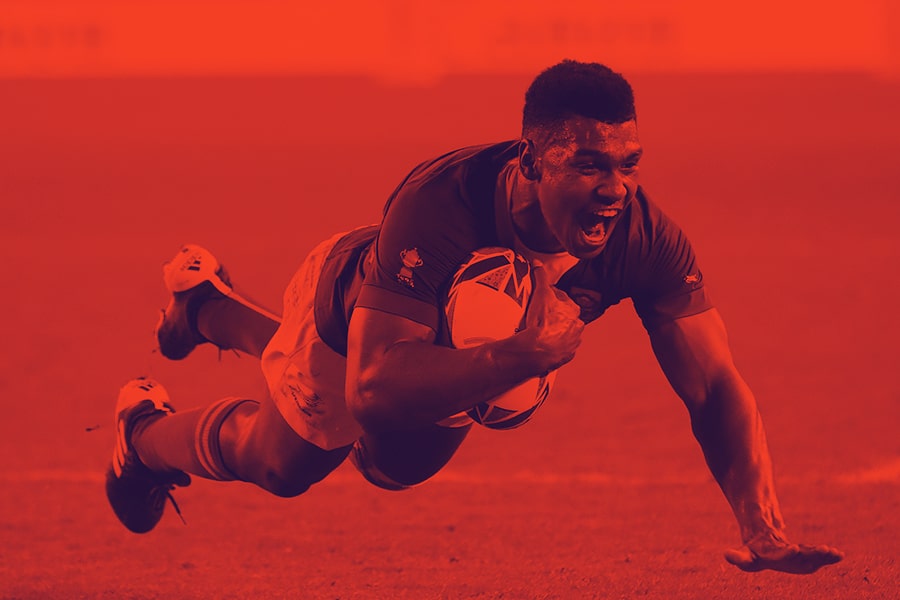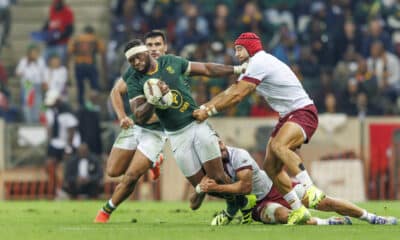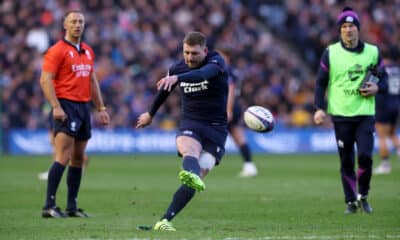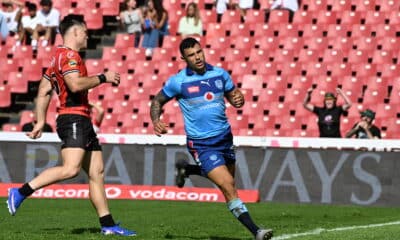
SA Rugby would make the best out of a bad situation if they follow through with a reported plan of fielding an inexperienced Springbok side in the Rugby Championship, writes Quintin van Jaarsveld.
According to a source of the Sunday Times, SA Rugby director of rugby Rassie Erasmus is considering taking a greenhorn squad to Australia for the Southern Hemisphere showpiece, which is set to take place from November 7 to December 12.
We live in a world where ideal scenarios no longer exist. That luxury is long gone due to the Covid-19 pandemic and it’s because of these unprecedented times that unprecedented measures – such as fielding a younger (i.e. less than full strength) Springbok side – are warranted.
SA Rugby is bleeding because of the ongoing lockdown. It’s lost millions upon millions of rands since Super Rugby was suspended in mid-March, which leaves the Springboks in the cruellest of conundrums.
Instead of riding the wave of World Cup glory, the men in Green and Gold find themselves stranded in a barren wasteland where uncertainty about a return-to-play date and competition structure remains.
New Zealand, meanwhile, have completed their domestic Super Rugby competition and have just started the Mitre 10 Cup, while the Brumbies host the Reds in the Super Rugby AU final this weekend.
The Springboks are, thus, seemingly on a hiding to nothing (so too Argentina, who find themselves in a similar situation) if they are to compete in the Rugby Championship.
However, as the lifeblood of the country’s franchises and unions, the Springboks don’t have the luxury of skipping the Test window as some are suggesting. They literally cannot afford not to play Test rugby this year.
Pieter Burger, manager director of Ellis Park, highlighted this on Twitter recently. Responding to Oom Rugby, who asked his followers whether the Springboks should Tests play this year, Burger said, “Very easy answer. Negative commercial impact weighs worlds heavier than emotional/tactical/opinion-based arguments. No Test 2020 = very good chance of no Boks (unions) 2021 (or at least for a long time).”
SA Rugby stands to gain millions in broadcasting and sponsorship revenue through the Springboks’ participation in the four-nation tournament, which would offer much-needed relief to unions, most of which are currently struggling to pay player salaries.
Playing in the eight-team Nations Cup would’ve been first prize, but with that door closed, the Rugby Championship is the only available avenue. Staying in South Africa and staging a full-strength Currie Cup is romantic but commercially unrealistic.
Opting to send a greenhorn squad Down Under – if those players have at least played four or five rounds of domestic rugby – would be a makeshift masterstroke, one that would protect the aura the Springboks re-established with their World Cup triumph whilst also developing depth for next year’s British & Irish Lions series.
The Springboks retaining the Rugby Championship title with a criminal lack of preparation is ludicrous and can be classified as mission impossible. A full-strength team have nothing to gain and everything to lose.
Selecting an inexperienced squad would be a commercial compromise that offers rugby benefits. As the only Tests before the Lions make their much-anticipated return to South Africa, players outside of the first choice matchday 23 would have everything to play for to lock down a place in the wider squad to take on the Home Nations’ all-stars.
Curwin Bosch and Damian Willemse are both seen as future Springbok flyhalves. Both have limited international experience and have been biding their time for an opportunity like this to prove themselves as a Test 10.
With Handre Pollard set to be sidelined for months after sustaining a serious knee injury in Montpellier’s loss to Racing 92 at the weekend, Elton Jantjies would be there as a seasoned safety net should things go seriously south.
Rising stars like Joseph Dweba, Sintu Manjezi, Wandisile Simelane and Aphelele Fassi – all widely regarded as Springboks in waiting – could get their first taste of Test rugby, while the likes of Lizo Gqoboka, Ox Nche, Akker van der Merwe and Sikhumbuzo Notshe could benefit from Springbok recalls they’ve worked toward for years.
It’s also a golden opportunity to lean on overseas-based players who’re not only match fit but also in rich form – Faf de Klerk, the Du Preez twins, Rohan Janse van Rensburg and Marcell Coetzee to name a few.
Coetzee has been mightily unlucky with injury again ruling him out of World Cup selection last year. The 30-Test loose forward has been phenomenal for PRO14 runners-up Ulster; he still has so much to offer Springbok rugby and would form a cornerstone of an inexperienced squad.
It would be a tricky balancing act, and one has to feel for Jacques Nienaber, whose opening assignment is a predicament no Springbok coach has faced before.
South Africa have depth that, on paper, would allow them to be competitive against Australia and Argentina if not New Zealand, but new combinations take time to develop, which the Springboks clearly don’t have.
That’s where Nienaber would have to box clever and stick to tried-and-tested pairings where possible – the centre pairing of Munster acquisition Damian de Allende and Sharks skipper Lukhanyo Am being a prime example as a stable foundation to build a new-look backline around.
Am is the perfect choice to captain a greenhorn team, as the Sunday Times report suggested. The effectiveness of the silent assassin’s lead-by-example style was evident as he spearheaded the Sharks’ surge to the summit of the curtailed Super Rugby competition.
Highly respected by his peers, Am made the Springbok No.13 jersey his own at last year’s World Cup and is in his prime. His rugby IQ is second to none, which makes him the defensive linchpin of the backline and enables him to manipulate space with vision and skill to put strike runners away.
The fact that Australia are ushering in a new era will aid the Springboks in their Everest-sized challenge. Dave Rennie’s included 16 uncapped players in his inaugural 44-man squad, while a further 13 have less than 10 Test caps to their names. The Wallabies do, however, have a core group of senior players and home ground advantage as tournament hosts.
The biggest concern is being blown out of the water by the All Blacks, but selecting a young squad would mitigate reputational damage. After all, can it get any worse than the soul-snatching 57-0 shutout the men in Green and Gold endured during the disastrous Allister Coetzee era in Albany in 2017?
Surely not, especially if a number of top All Blacks – as reports coming out of New Zealand suggest – opt-out of playing due to travel concerns (with teams set to spend at least eight weeks in Australia and then to go through two weeks of isolation upon their return).






















